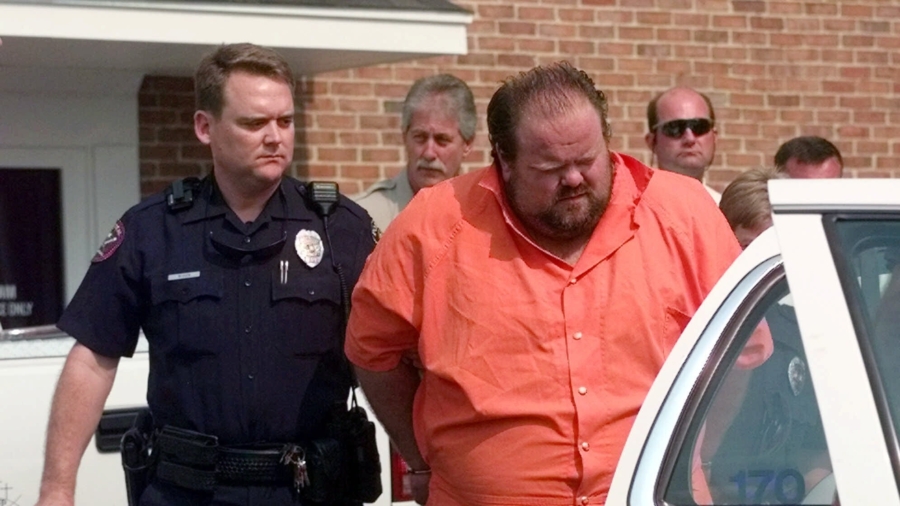Alan Eugene Miller, who was convicted of killing three people in back-to-back workplace shootings, was executed with nitrogen gas at a south Alabama prison on Thursday.
Miller, 59, was pronounced dead at 6:38 p.m. local time.
Miller was found guilty of the 1999 murders of his then-coworkers Lee Holdbrooks, Christoper Scott Yancy, and Terry Lee Jarvis.
“I didn’t do anything to be in here,” Miller said in his final words that were at times muffled by the blue-rimmed gas mask that covered his face from forehead to chin. However, witnesses at the trial had expressed no doubt about his guilt, describing Miller shooting the three men.
At the execution, Miller also asked his family and friends to “take care” of someone but it was not clear whose name he said.
“Tonight, justice was finally served for these three victims through the execution method elected by the inmate,” Alabama Gov. Kay Ivey said in a statement. “His acts were not that of insanity, but pure evil. Three families were forever changed by his heinous crimes, and I pray that they can find comfort all these years later.”
Family members of the three victims did not witness the execution and did not issue a statement to be read to reporters, state officials said.
Miller had been scheduled for execution via lethal injection two years prior, on Sept. 22, 2022. The procedure was called off when officials had trouble establishing an IV line to administer the lethal drugs.
Miller’s attorneys litigated to block the state from attempting a second execution by lethal injection, arguing that their client endured “torture” during the botched execution. According to an Oct. 6, 2022, court filing, two officials punctured Miller’s arms, legs, feet, and hands for over 90 minutes, unsuccessfully looking for a vein.
“What then, in Defendants’ view, is a constitutional amount of time to spend stabbing someone with needles in an attempt to kill them?” his attorneys argued.
Miller, who was 351 pounds, had testified in an earlier court hearing that medical workers always had difficulty accessing his veins and proposed himself be executed by nitrogen hypoxia, a new execution method approved in 2018 by the state of Alabama.
However, given that the state had yet to finalize the nitrogen gas execution protocol, his execution was put on hold.
Miller’s trial was the fourth failed execution by lethal injection in four years in the state. In 2018, the execution of murderer Doyle Hamm was postponed when the IV team failed to find a vein, pricking him for more than two-and-a-half hours. Hamm has since died of cancer.
In November 2022, Kenneth Eugene Smith’s execution was postponed after more than an hour for the same reason.
A few months prior, in August of 2022, allegations of gross incompetence followed in the wake of the three-hour-long execution of murderer Joe Nathan James, Jr. Though the execution obtained its objective, the autopsy revealed that James’s arms were riddled with puncture wounds and multiple unexplained incisions, according to a report by the Death Penalty Information center.
Once the state of Alabama had finalized its protocols in 2023, Smith became the first to be executed with nitrogen gas. However, his January 2024 execution shocked some witnesses who said they saw Smith, gasping and convulsing as the gas was being administered to him through a mask.
Miller’s attorneys asked the court to block the nation’s second scheduled execution using nitrogen gas, calling Smith’s execution a “disaster.”
State officials have argued that nitrogen hypoxia is “the most painless and humane method of execution known to man,” but critics say otherwise.
The American Veterinary Medical Association wrote in 2020 euthanasia guidelines that nitrogen hypoxia is not an acceptable euthanasia method for most mammals because the lack of oxygen “is distressing.”
The Associated Press contributed to this report.

